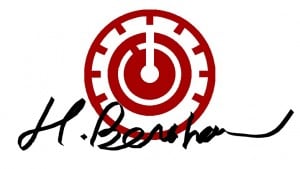Le colonialisme n’est pas une machine à penser, n’est pas un corps doué de raison.
Colonialism is not a thinking machine, is not a body endowed with reason.
Frantz Fanon
Should antistatists and anti-nationalists in the West condemn, ignore or support small nationalist causes in the non-Western world?

Frantz Fanon: political theorist and key influence on countless Third World nationalist causes (including ones who fought against each other)
This is an issue that has been on my mind recently because of a slight dispute that I had with a fellow political commentator whom I continue to have the utmost respect and admiration for. His view likened nationalists in Pakistan with the neoconservative movement in the United States, and basically put forward the view that someone who refuses to condemn Pakistani nationalists might as well support the neoconservatives in the US on the grounds that small imperialist or nationalist causes are as lethal as the bigger ones. This is a theory that was never unknown to me or a great many sociologists who are more qualified than I, and I had in fact been rejecting that very theory for years. As cold as it sounds, I don’t care if a theory is killing people: I am solely interested in whether it is effective in weakening hegemony.
It is not an oversight by me that causes me to not bother condemning nationalism in Pakistan and countless other countries while I condemn it in my own country and more so in the US. It is a well-informed principle, as I shall explain.
The essay to go to on this subject would be Immanuel Wallerstein’s brilliant piece, “Culture as the Ideological Battleground of the Modern World-System”. I believe it repudiates everything that can be said against the diversity of causes – nationalist and anti-nationalist – that I and other combatants against hegemony have expressed support for.
One of the great thinkers who inspires much of the non-Western world is Frantz Fanon, the ideological father of postcolonial political theory and the concept of the national liberation struggles that shook the world in the post- World War 2 era. Without the aid of this man’s ink, there would probably have been no Palestine Liberation Organization, no Baath Parties, no Muammar Gaddafi, and possibly no cause of national liberation and pride in the majority of nations today labelled “Third World”. Many of these ideologies stemmed from Algerian national liberation from French colonialism, for which Fanon was a great agitator.
I will not lie about small nationalist causes in the Third World. My own Western sensibilities and internationalist, hyper- modernist leanings mean that I personally find Third Worldist rhetoric inane, its causes often misguided. But in the rare junctures where their rhetoric aligns with true liberation struggles and confrontations with hegemony, they stand vindicated. It is in those moments that these regimes, often labelled tyrannies by Western states, become the knights so desperately needed by the world’s oppressed. Gaddafi may have been a monster to the nuanced political elites of the world, but to the peoples of Africa he was universally loved and viewed as an icon. Hence, the elimination of Gaddafi by NATO was in essence an act of racism, a rejection of the values and common destiny felt by the peoples of Africa at the hands of a dismissive and arrogant power.
Were Bashar al-Assad not on the frontline against US aggression, he would likely not be endorsed and admired by so many millions of people throughout the world. He likely would not be in power today. The American government’s very obsession with eliminating al-Assad has made him more powerful than they could possibly have intended.
All of this has to do with the theory of the world-system as an ideological battlefield. Those who are perceived to triumph causes of national liberation, whose apparently reactionary slogans and statements align with actual liberation and the battle against hegemony, are only superficially reactionary: the actual cause they represent for a marginalized and oppressed country or people is surely not reactionary.
Samir Amin presents almost exactly the same views in his conclusions that popular nationalism of the Cuban type is actually the most effective ideological vehicle for many oppressed people, and that power ideologies originating in the Third World simply cannot bear the same shame as rhetorically similar ideologies that influenced true imperialism as it was exported from Europe. In sum, Western liberals are not hypocrites to exclude the nationalists, religious extremists or even racists of the Third World from our condemnation of such ideology in the West itself.


